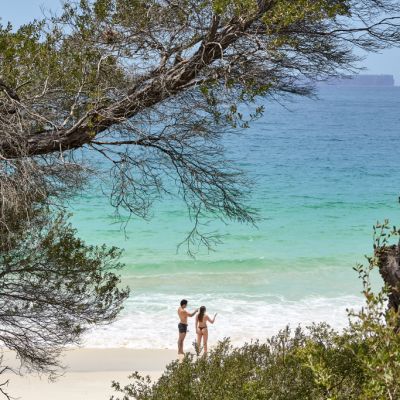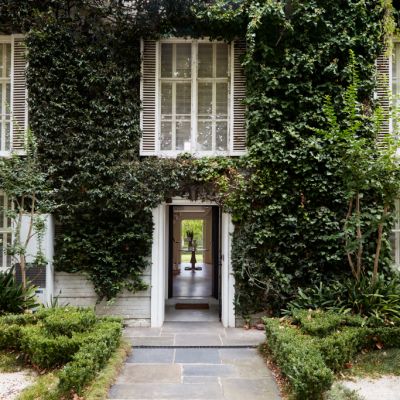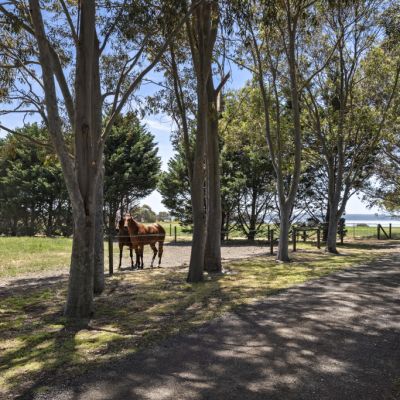Planetrees: 100-year-old former timber mill transformed to a green oasis just listed
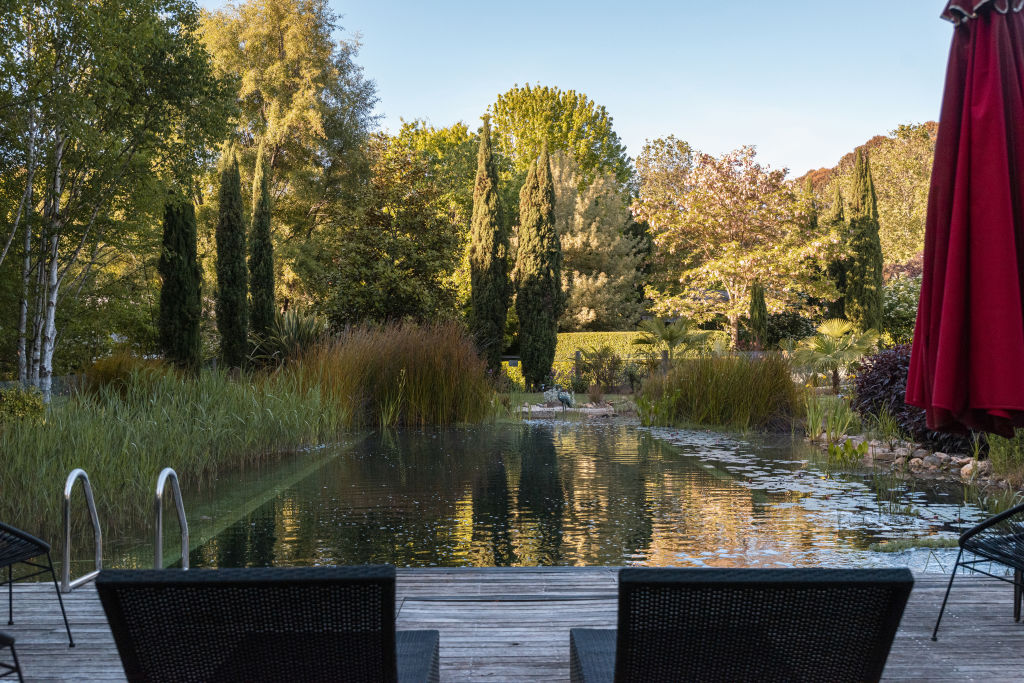
It’s impossible to imagine now, viewing the lavishly green two-hectare property known as Planetrees, that it began with a blank piece of paper on a kitchen table.
The year was 2008, and Genevieve Milham was in search of “a vision project – the kind of project that was going to take some time”.
She found one close to the north-eastern Victorian town of Stanley, where a 100-year-old former timber mill site cried out for someone with creativity at their core to coax beauty from the rubble-topped clay.
Arriving at Planetrees now offers an acute case of garden sensory overload.
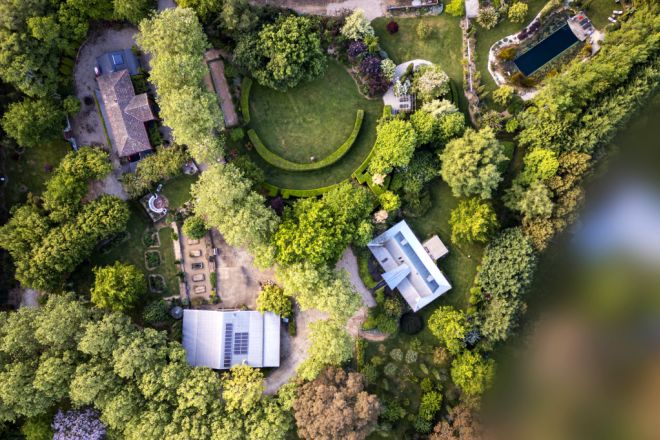
The curving drive is lined with the titular plane trees, their broad leaves stretching to the heavens.
A huge circular lawn girdled by a double-layer laurel hedge offers a point of serenity amid a profusion of more than 300 mature European trees – Italian pencil pines, birches and oaks.
There’s a grove of olive trees, perennial garden beds and a vegetable garden, while a rose-covered pergola provides a moment of whimsy.
It’s a garden full of secret nooks and wonderful surprises, like a bocce court and endless gravel-covered terraces.
As Milham knows from experience, good design takes time. A trained architect and an avid cellist and painter, she has also worked in the fields of interiors and fashion.
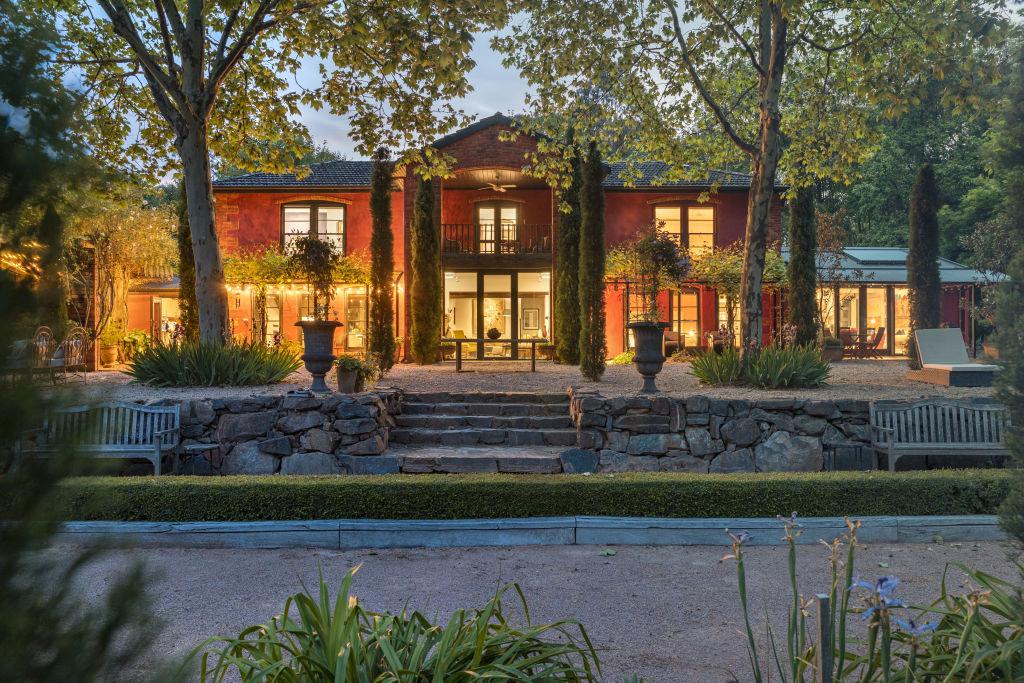
That blank piece of paper took three months of work to turn into a final blueprint, then another six years of hard work and patient waiting for the garden to reveal its architectural inspiration of an interlinked series of garden “rooms” to explore and discover.
“I did earthworks to give the landscape shape and to create terraces on what was just this continuous, sloping site,” Milham says. “And then, within that master plan, I worked like a jigsaw, creating different rooms.
“By planting big hedges and placing trees just so, it was about creating a walking tour through the garden and prompting people to go to the next step around a corner that opens another vista.”
Milham’s efforts weren’t confined to the great outdoors. The site also housed two “funny old buildings” which have been transformed as elegantly as the garden.
The two-storey main house is the very image of a Tuscan farmhouse.
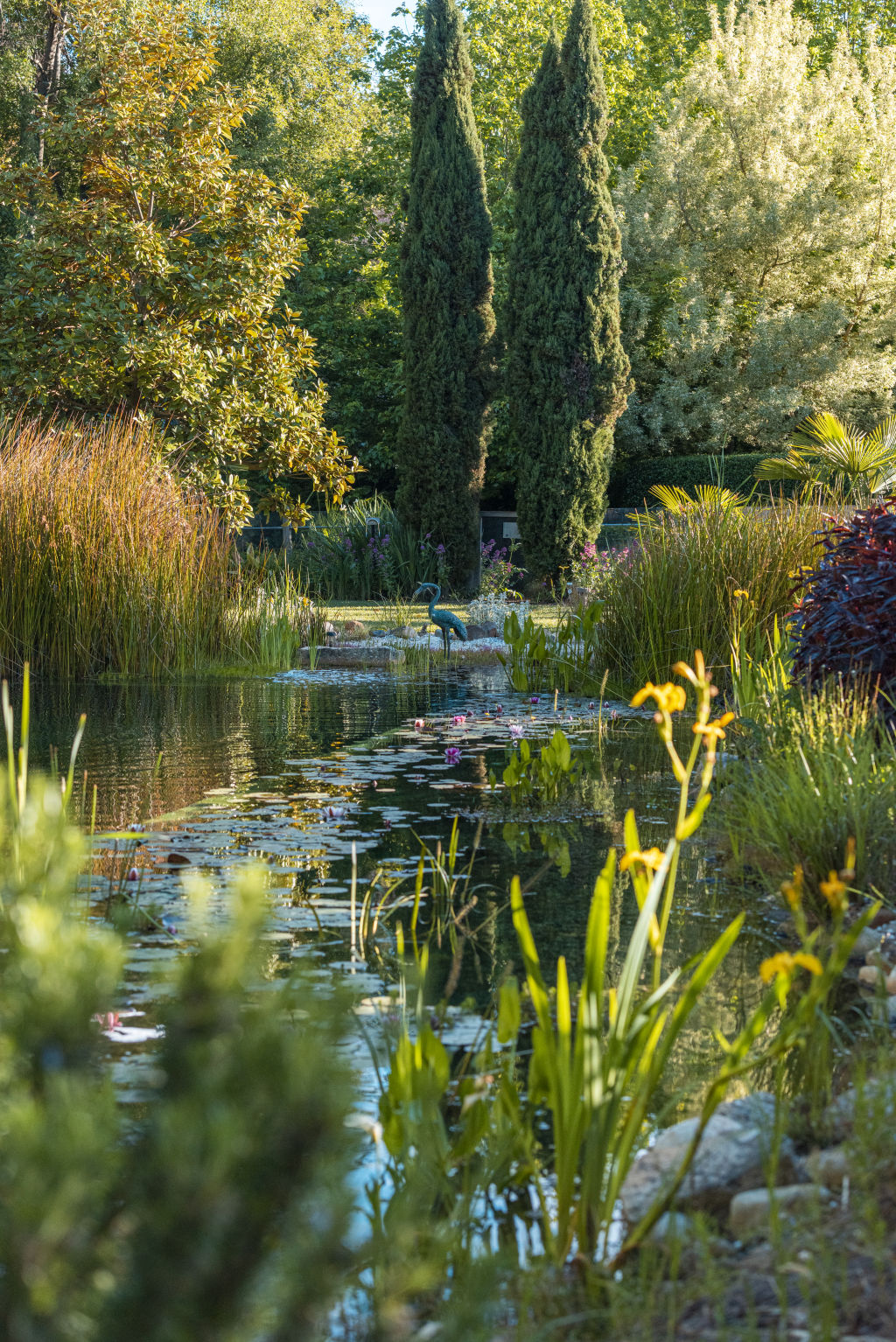
Complete with a self-contained studio, it was made with recycled bricks and timber, including massive support beams that were taken from the decommissioned Nagambie bridge.
In its own secluded spot, a timber and earth lodge sleeps another eight people in a rustic yet comfortable style.
There’s also a character-filled corrugated iron shed that winks with the potential for a studio, art space or wedding venue.
It’s the kind of place described as a “lifestyle” property, but Planetrees is something more. It feels like a time machine to an era when people dressed for dinner and cocktail hour was sacrosanct.
The swimming pool alone conjures reveries of the English World War II film Atonement.
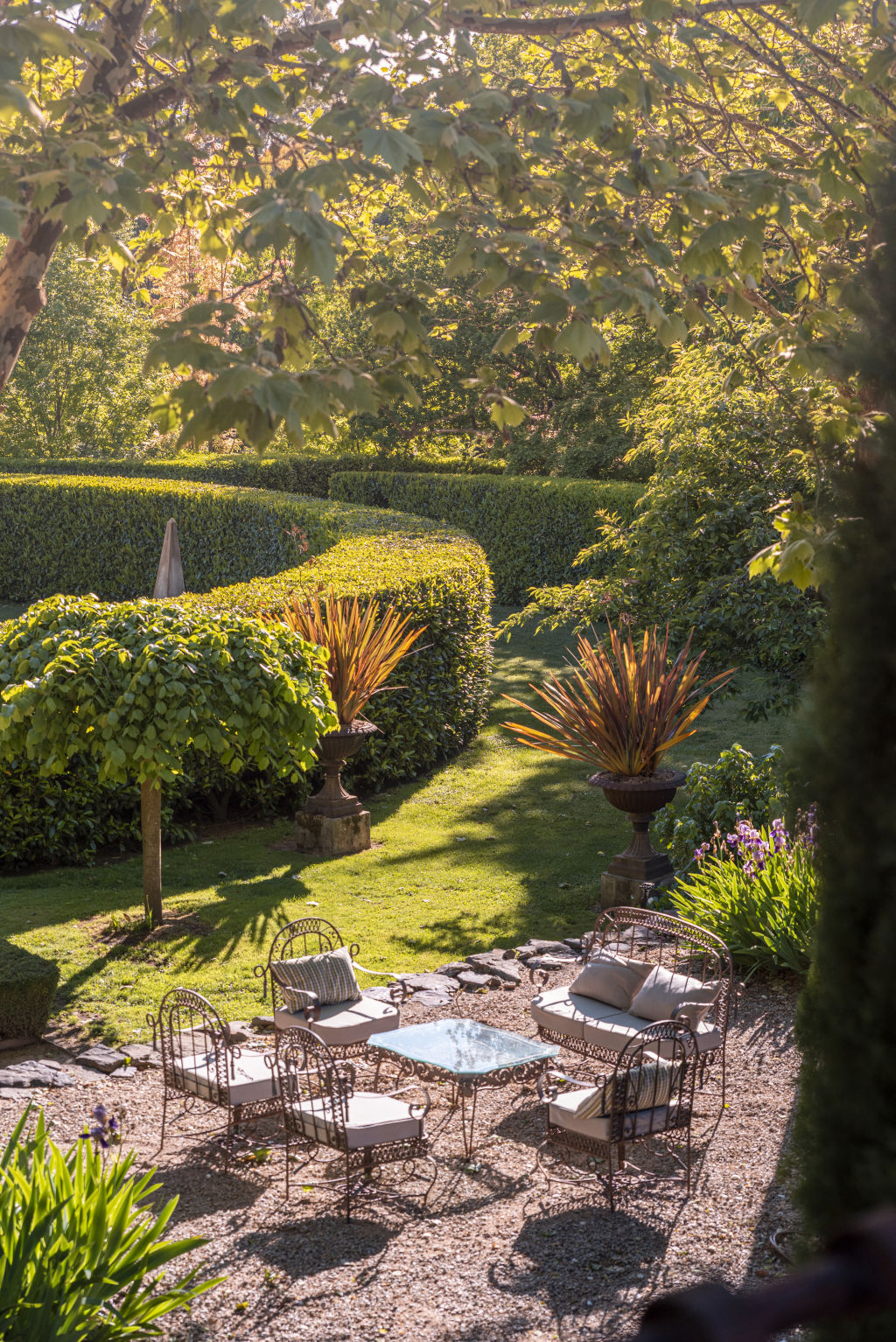
An early adopter of the current “natural pool” craze, it is nestled into the landscape, surrounded by a Monet-worthy vision of water lilies, irises and reeds.
“It’s designed so you don’t see the sides of the pool because they sit beneath the water level,” Milham explains.
“So, the pool water floods out over the edges into the regeneration bed. The effect is that you feel like you’re swimming in a lake surrounded by water lilies.”
It would be foolhardy to attempt the Planetrees garden in Melbourne, but it is well suited to the decidedly seasonal north-eastern Victorian climate.
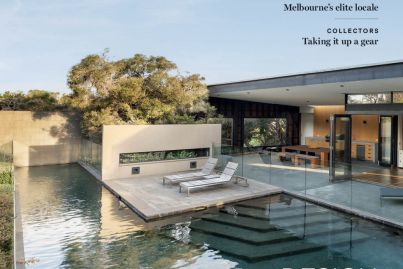

Irrigation across the property keeps the worst aspects of the summer months at bay, while the pencil pines create drama and structure when their companion trees have lost their leaves in winter.
As for upkeep, Milham says it’s manageable with the help of a casual gardener “and a three-week blitz at the start of winter”.
“I’d like to think that it inspires people to know that you can really take on amazing projects,” she says as she prepares to depart in search of her next creative endeavour.
“By just chipping away, things that look impossible at the beginning can be achieved just by bit by bit, and you can leave a little square of the earth a bit better than when you started.
We recommend
We thought you might like
States
Capital Cities
Capital Cities - Rentals
Popular Areas
Allhomes
More
